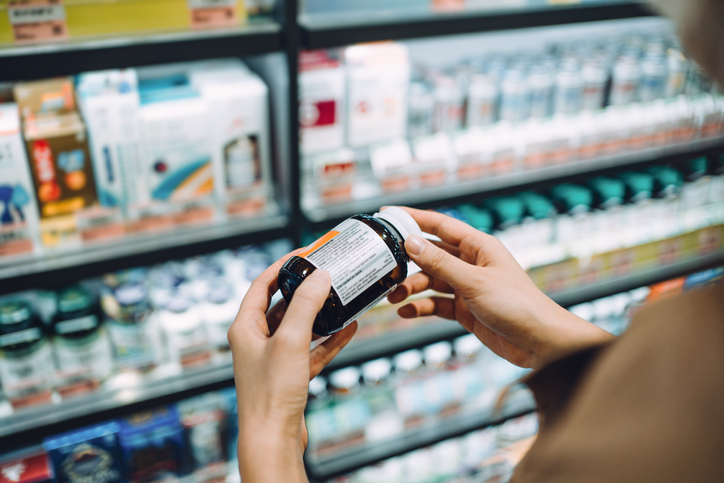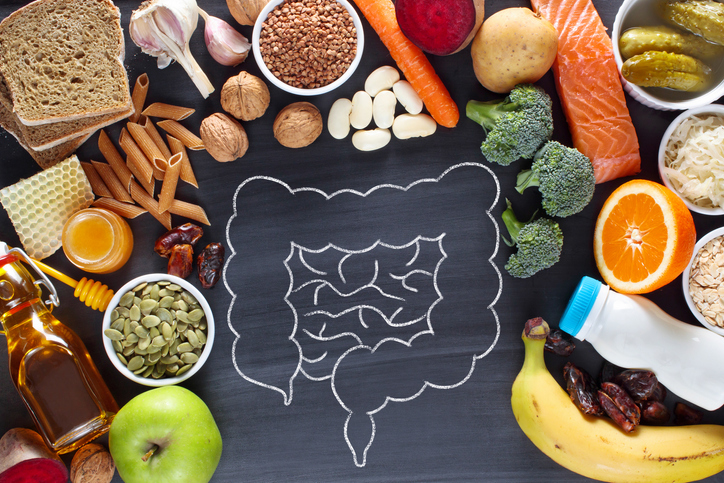Read Product Content Labels to Help Keep Your Gut Healthy

By Joy Stephenson-Laws, J.D., Founder
By now, you’re probably aware of how the trillions of microbes that live in your gut (collectively known as the gut microbiome) contribute to your health. Its benefits range from helping protect your immune system, facilitating nutrient absorption, lowering your risk for obesity and other metabolic conditions, possibly protecting your mental health, producing micronutrients and even potentially reducing your risk for cancer. Not having a healthy gut microbiome can increase your risk for developing diabetes, heart disease and malnutrition.
So, you are probably doing what you can to have the healthiest – and most robust – gut microbiome possible. You follow a gut microbiome-supportive diet, possibly take pre and probiotic supplements and exercise to help keep these unseen protectors of your health at their best. But as what happens with many things that impact health, you may be inadvertently undoing some of this good by using or consuming products with ingredients that can harm your gut microbiome.
There are even some prescription and OTC medications which research suggests may interfere with its healthy functioning.

You can help protect the delicate balance of microbes in your gut by avoiding products with potentially harmful ingredients and working with your doctor or pharmacists to reduce the impact of medications you need to take.
The most common products/ingredients and medications that can impact your gut are:
Products with the Antimicrobial Triclosan
Until a few years ago, triclosan was the active antimicrobial ingredient in literally thousands of products, ranging from toothpaste, shampoos and antibacterial soaps to yoga mats, cutting boards and cosmetics. It’s probably safe to assume that any product that touted antimicrobial properties contained (or may still contain) triclosan. In addition to this, triclosan can make its way from wastewater into surface water and agricultural soil.
About five years ago, however, the U.S. Food and Drug Administration regulated that it no longer be used in antiseptic products for hospitals. A year earlier, the FDA also banned it in over-the-counter antiseptic cleansing products for home settings. Reasons were concerns that triclosan could help promote the development of more resistant bacteria and that it had not been proven safe for long-term daily use. In the following years, many manufacturers also removed it from their products given worries about triclosan’s potential health risks.
Research suggested that triclosan could be absorbed through the skin and gastrointestinal tract. Another study from the University of North Carolina at Chapel Hill, the University of Massachusetts Amherst and Hong Kong Baptist University on laboratory mice indicated that triclosan could trigger gut inflammation. This inflammation could exacerbate the severity of colitis by altering the gut microbiome. Similar research indicated that the compound could also increase the development of Inflammatory Bowel Disease (IBD) in laboratory mice.
Household Cleaning ProductsCommon cleaning products you probably have around your house could also harm the delicate balance of your gut microbiome. Studies have found exposure to cleaners such as dishwasher detergents decrease the microbiome diversity and reduce levels of beneficial microbial metabolites.
Another showed an increase in certain bacteria in a child’s microbiome which is associated with childhood obesity. This study also found evidence that disinfectants appeared to have the greatest negative effect on an infant’s gut bacteria, even more than other cleaning products such as spray air fresheners.
Researchers also found that a variety of semi-volatile organic companies, such as phthalates and per- and polyfluoroalkyl substances, impacted the diversity and number of bacteria in their gut microbiomes. These substances can be found in plastic shower curtains and raincoats, water-repellent fabrics, paints and detergents.
Prescription and OTC Medications
Recent studies continue to suggest that many medications can impact your microbiome composition and, in some cases, even its function. Some of the more common are:
- Metformin – is prescribed to treat type 2 diabetes
- Proton Pump Inhibitors (antacids) – these are some of the most widely used medications for treating gastrointestinal conditions such as acid reflux, ulcers and dyspepsia
- Selective serotonin reuptake inhibitors (antidepressants) – this class of medication is the most prescribed to treat depression as well as anxiety
- Laxatives – are used to treat occasional constipation
- Opioids – are powerful prescription medications used for acute or chronic pain (they should be used for the shortest time possible to reduce the risk of dependence or addiction)
- Statins – are used to lower cholesterol and are one of the most widely prescribed medications in the U.S.
Antibiotics – use of this class of medications in the U.S. is among the highest in the world with four-out-of-five Americans being prescribed antibiotics every year
Foods & Lifestyle
You need to be sure to follow a diet and lifestyle that will protect your gut microbiome and help it flourish with the right balance of bacteria. Some things to avoid are:
- Alcohol – overindulging or long-term use can cause an imbalance in your gut biome’s bacteria (red wine in moderation, however, increased “good” bacteria and reduced “bad” bacteria)
- Sugar – in addition to its other health risks, your sweet-tooth can harm your gut microbiome by reducing its level of beneficial bacteria
- Artificial Sweeteners – research suggests that these may increase the number of unhealthy bacteria in your gut
- Cigarette Smoking – if you smoke and need another reason to quit, protecting your gut health is one of them since it increases your risk for IBD (inflammatory bowel disease) and Crohn’s disease
- Not Enough Sleep – may have harmful effects on your gut microbiome by possibly disrupting its natural circadian rhythm
- Stress – studies in laboratory animals have shown stress can reduce diversity of the gut microbiome
- Processed foods – may change your gut microbiome and cause inflammation
- Being Sedentary – researchers have found that exercise promotes the growth of “good” bacteria in your gut
How To Be Proactive
Proper nutrition is also key when it comes to maintaining a healthy gut microbiome. Eating foods such as fruits, vegetables, whole grains, nuts and legumes, which are rich in fiber and other essential nutrients, is key in maintaining a good community of gut bugs.
You want to make sure that you are eating foods that naturally contain probiotics. Foods like yogurts, pickles, sauerkraut, kefir and kombucha are all great sources of probiotics. Broccoli may even help with gut health. And don’t forget about prebiotics!
Finally, might I suggest taking the pH GI Effects test. This test not only provides insight into the bacteria of your digestive system, but also identifies parasites, assesses levels of digestive and absorptive functions, as well as potential issues with gut inflammation and immunology. Anyone with concerns regarding their digestive system should start here.
Enjoy your healthy life!
The pH professional health care team includes recognized experts from a variety of health care and related disciplines, including physicians, attorneys, nutritionists, nurses, and certified fitness instructors. This team also includes the members of the pH Medical Advisory Board, which constantly monitors all pH programs, products, and services. To learn more about the pH Medical Advisory Board, click here.



